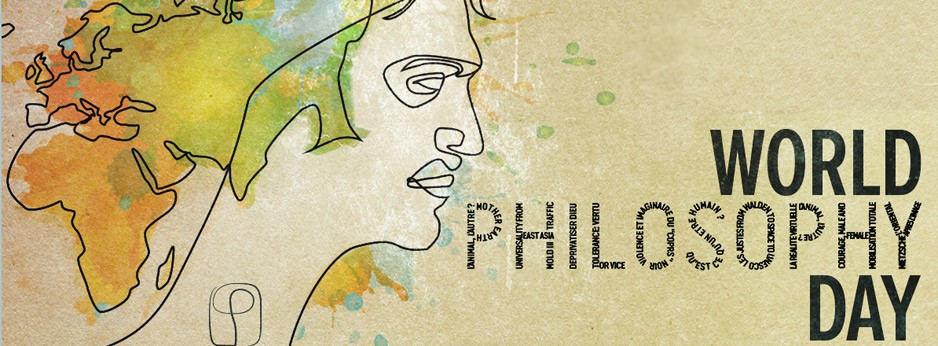روز جهانی فلسفهتقویم علمی ایران

یونسکو با گرامیداشت روز جهانی فلسفه هر ساله ، در پنجشنبه سوم نوامبر ، ارزش ماندگار فلسفه را برای توسعه اندیشه بشری ، برای هر فرهنگ و برای هر شخص برجسته می کند.
فلسفه یک رشته الهام بخش و همچنین یک تمرین روزمره است که می تواند جوامع را متحول کند. فلسفه با امکان کشف تنوع جریان های فکری در جهان ، گفتگوی بین فرهنگی را تحریک می کند. فلسفه با بیدار کردن ذهن برای انجام تفکر و تقابل مستدل نظرات ، به ساختن جامعه ای با مدارا و محترمانه تر کمک می کند. بنابراین با ایجاد شرایط فکری برای تغییر ، به درک و پاسخ به چالش های مهم معاصر کمک می کند.
یونسکو روز جهانی فلسفه را رهبری می کند - اما مالک آن نیست. این متعلق به همه است ، در همه جا ، که به فلسفه اهمیت می دهند.
در این روز تمرین جمعی در تفکر آزادانه ، مستدل و آگاهانه در مورد چالش های مهم زمانه ما ، همه شرکای یونسکو به سازماندهی انواع مختلفی از فعالیت ها - گفتگوهای فلسفی ، مناظره ها ، کنفرانس ها ، کارگاه ها ، رویدادهای فرهنگی و ارائه سخنرانی ها در اطراف عمومی تشویق می شوند. موضوع روز ، با حضور فلاسفه و دانشمندان از همه شاخه های علوم طبیعی و اجتماعی ، مربیان ، معلمان ، دانشجویان ، روزنامه نگاران مطبوعات و دیگر نمایندگان رسانه های جمعی و عموم مردم.
By celebrating World Philosophy Day each year, on the third Thursday of November, UNESCO underlines the enduring value of philosophy for the development of human thought, for each culture and for each individual.
Philosophy is an inspiring discipline as well as an everyday practice that can transform societies. By enabling to discover the diversity of the intellectual currents in the world, philosophy stimulates intercultural dialogue. By awakening minds to the exercise of thinking and the reasoned confrontation of opinions, philosophy helps to build a more tolerant, more respectful society. It thus helps to understand and respond to major contemporary challenges by creating the intellectual conditions for change.
UNESCO leads World Philosophy Day – but does not own it. It belongs to everyone, everywhere, who cares about philosophy.
On this Day of collective exercise in free, reasoned and informed thinking on the major challenges of our time, all of UNESCO’s partners are encouraged to organize various types of activities - philosophical dialogues, debates, conferences, workshops, cultural events and presentations around the general theme of the Day, with the participation of philosophers and scientists from all branches of natural and social sciences, educators, teachers, students, press journalists and other mass media representatives, and the general public.